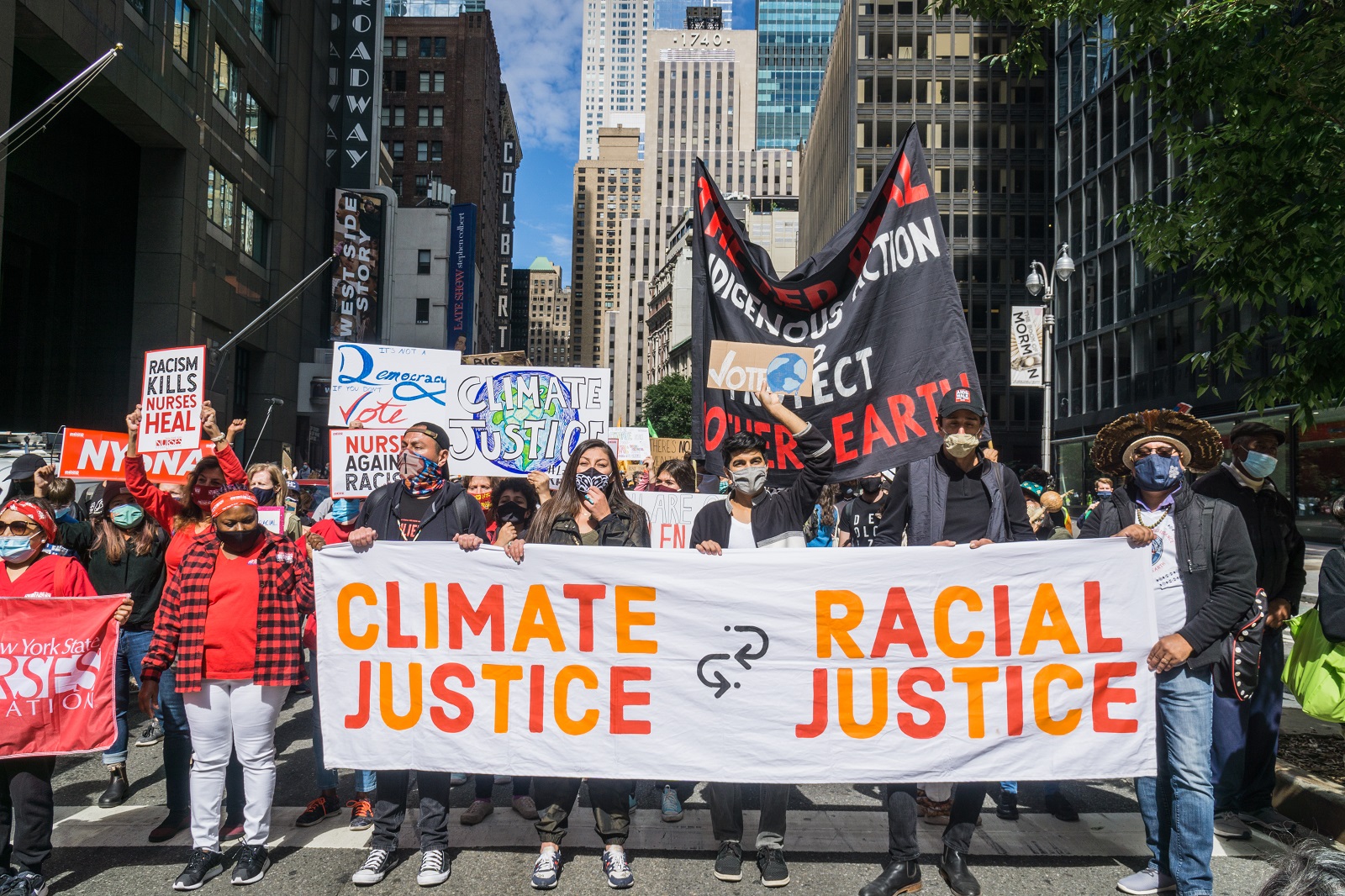
The pandemic keeps evolving and “new normal” is an ever-changing concept. What we can look to are the lessons learned from the pandemic to build a better normal, while still remembering and honoring what was lost.
Keeping the momentum going during the post-pandemic years will be crucial to building that better—greener—normal. These four enduring lessons are a few of our takeaways from the worst of the pandemic.
Mutual Aid
Within the first few weeks after the March 2020 lockdown, mutual aid networks blossomed throughout the country as social safety nets and systems-based support fell through. Neighbors delivered groceries and prescriptions, offered transportation, and assisted elders, the immunocompromised, and high-risk people who were safest at home. This is the spirit of mutual aid—working cooperatively to meet the needs of the community.
When unemployment peaked at 14.8% in April 2020—the highest rate observed since 1948—people helped each other meet bills through outpourings of small donations. Today, the Mutual Aid Hub website lists 895 mutual aid networks throughout the nation.
While we hope this is the only pandemic in most of our lifetimes, with more and more climate crises causing fires, floods, and migration, we know we will face more hardships in the future. With the lessons of mutual aid, we are more resilient when we face them together.
Support for Small Businesses
Small businesses across the nation closed their doors permanently due to the pandemic and 30% of small businesses say they won’t survive 2021 without additional government assistance, according to a survey from the Federal Reserve. Yet small businesses are a crucial sector of the economy, creating two-thirds of net-new jobs. Unlike large companies that create their own internal infrastructure, small businesses generally outsource skills like accounting, web design, and more, which keeps money flowing through the local economy.
It seems that people understand the importance of local and small businesses more than ever before. Just over 82% of people said they would spend more at local businesses after the pandemic, according to a study from Red Egg Marketing. And people are not necessarily doing it for ease or convenience—just over 77% of respondents do it simply to support local business. These efforts are going to be essential to rebuilding resilient communities in the years after the pandemic.

Sustained Energy for Racial Justice
An estimated 15 to 26 million people in the US participated in Black Lives Matter protests in 2020, according to the Crowd Sourcing Consortium, making it one of the largest sustained movements in American history. Immediately after George Floyd’s murder in May 2020, public opinion spiked in support of Black Lives Matter, according to polling firm Civiqs.
However, that support has faded, with just under half of US adults a year later holding favorable views of the Black Lives Matter movement—down from 61% in May 2020. There has been little lasting policy reform for racial justice and small reforms from companies and communities, but not enough to move the needle. For our nation to truly have a racial justice reckoning, it is more important than ever that we sustain energy for anti-racism and racial justice efforts from our communities and legislators long after 2020.
Working From Home
The mass exodus from corporate offices redefined the day-to-day of office jobs—high rises and cubicles were traded for dining tables and bedroom desks. Some US companies are even adopting a hybrid office workweek, with 13% giving up on office space entirely, according to a PwC January 2021 survey.
There’s a climate case for working from home, too. Road travel accounts for three-quarters of greenhouse gas emissions, most of which come from commuter vehicles with just one person in them. Working from home cuts down on this traffic and the resulting emissions. While many workers are not remote, those who can work from home and drive less contribute to the reduction of air pollution, which is a benefit to air quality and respiratory health everywhere. But for these benefits to last, companies must consider remote work a climate policy.
Companies can account for a work-from-home carbon footprint by making clean energy a workplace benefit. SkySpecs, a digital asset management company, is doing just that with Arcadia{GBN}, a clean energy provider. For employees that make the switch to Arcadia’s 100% wind plan for their home, SkySpecs covers the extra cost on their energy bills. Other options for creating a climate-friendly work-from-home policy could be subsidizing energy-efficient appliances and providing public transit perks for company-related travels. The latter option could apply to workers who are not remote, too.
In the years after the pandemic, a hybrid workweek could bring balance to office workers’ lives and act as a small part of addressing the climate crisis.
As we continue emerging from this pandemic, consider what you want our "new normal" to look like and what we as a community can do to make it a reality.







